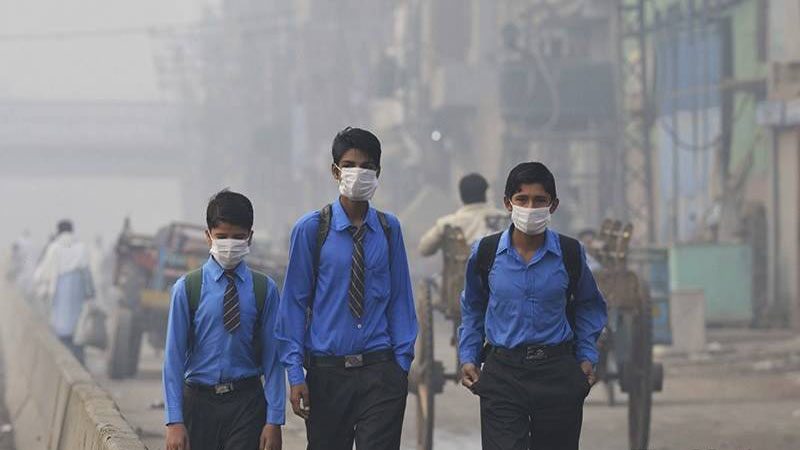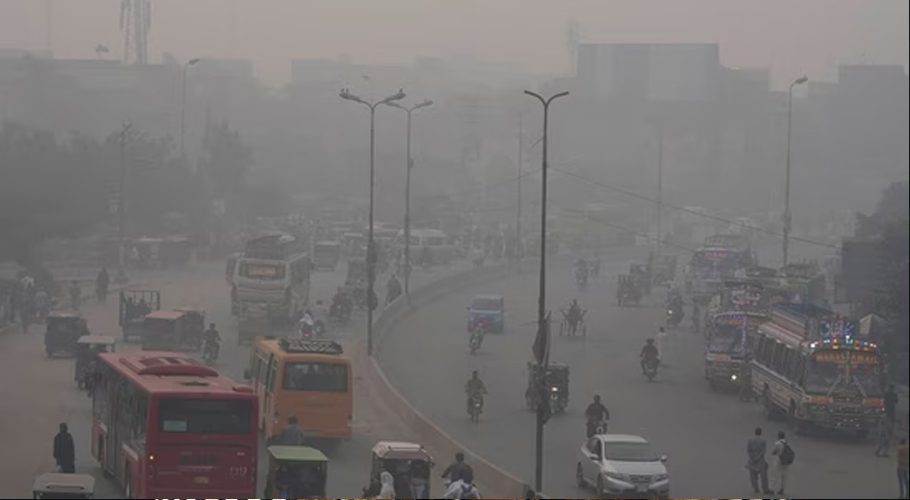Smog effects on health can be devastating – particularly when it comes to long-term exposure, that’s why the Punjab government has imposed smog emergency in Lahore, Gujranwala, and Hafizabad to combat the environmental situation in the province.
The health effects of air pollution are serious – one third of deaths from stroke, lung cancer and heart disease are due to air pollution. This is having an equivalent effect to that of smoking tobacco, and much higher than, say, the effects of eating too much salt.
What is smog?
Rapid and unchecked industrialization and the combustion of fossil fuels have engendered a state of fear in urban settlements. Smog appears mainly in urban areas, where the concentration of air pollution is much higher. High population density, transportation, the presence of polluting factories, and other industrial facilities – all of these factors make smog more likely to appear.
Smog is a visible form of air pollution that arises due to the over-emissions of some primary pollutants like volatile organic compounds (VOCs), hydrocarbons, SO2, NO, and NO2 which further react in the atmosphere and give rise to toxic and carcinogenic secondary smog components. Smog reduces the visibility on roads and results in road accidents and cancellation of flights.
Also read: Smart lockdown imposed in three Punjab divisions for four days
Smog effect on human health
The impact of smog on your overall health and well-being varies depending on a number of variables. Seniors and children are most likely to be severely impacted by it. Smog exposure-related symptoms can be significantly exacerbated by certain conditions. The primary ones are respiratory illnesses like asthma and others. Smog poses a special risk to expectant mothers. The fetus may be negatively impacted by the contaminating particles, which may result in miscarriages. Additionally, the scientific investigations discovered a connection between the likelihood of autism spectrum disorders and exposure to air pollution.
How does smog affect your respiratory system?

Some respiratory diseases, such as asthma, obstructive pulmonary disease (COPD), or cancer (lung, larynx, throat), have a clear link to exposure to smog. Of course, they can also develop without it due to some genetic dispositions. Nevertheless, smog can worsen their symptoms or even initiate them. Its influence on the human body can be compared to passive smoking – the implications of both are similar.
Is smog dangerous for other human organs, too?
Unfortunately, yes. When breathing with smog, you can inhale particulate matter. The diameter of the smallest particles is so small that they can get to your bloodstream through the lungs. This way, they’re transported to various organs. They can accumulate there, causing dysfunctions. Smog affects particularly the circulatory system, lifting the blood pressure and interfering with the heart rate. These implications can elevate the risk of cardiac arrest and strokes.
How to protect yourself?
Adopt appropriate protective measures – like, for example, wearing the antismog mask.


































